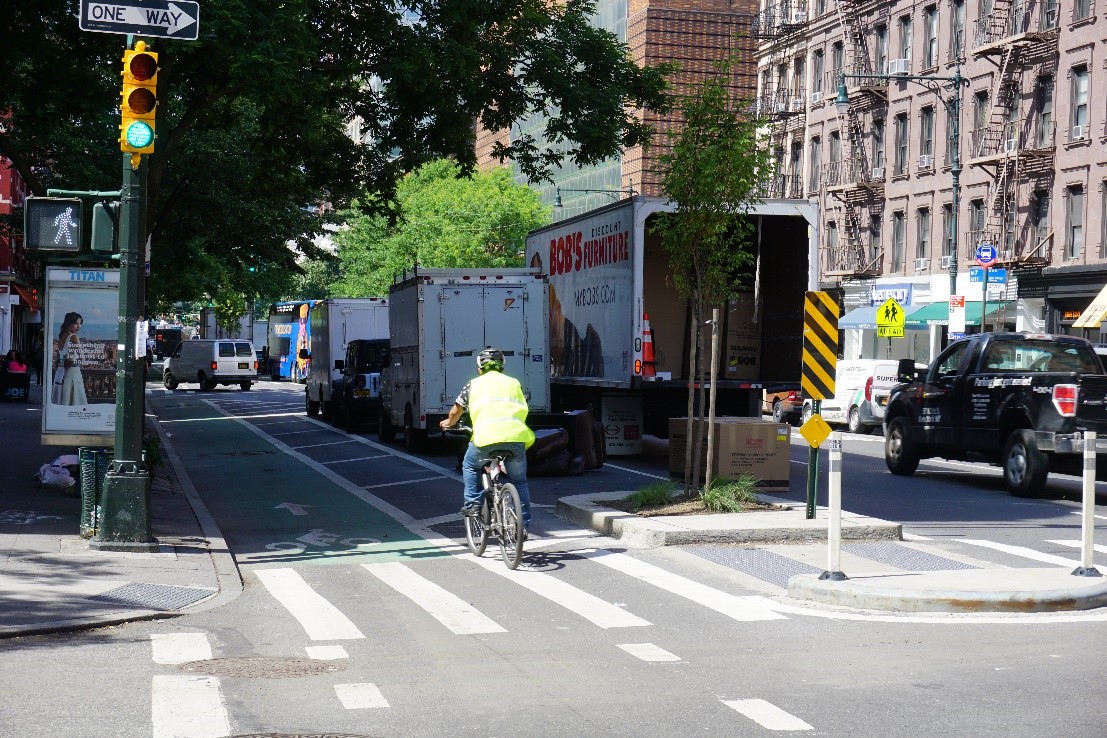News | MetroFreight: An International Research Organization at the Service of Local Practice
Stop the VideoNews

PSR METRANS UTC MetroFreight
MetroFreight: An International Research Organization at the Service of Local Practice
Thursday, September 6, 2018
This article is part of an ongoing series that describes research accomplishments and achievements of the METRANS Transportation Center in recognition of its 20th Anniversary. Dr. Laetitia Dablanc is Director of Research at the French Institute of Science and Technology for Transport, Development and Networks (IFSTTAR), University of Paris-Est, and a team leader for MetroFreight, the VREF Center of Excellence in urban freight research led by the University of Southern California.
MetroFreight: An International Research Organization at the Service of Local Practice
By: Laetitia Dablanc
Since its establishment in 1998, METRANS has conducted pioneering research in the fields of goods movement in metropolitan regions. In 2013, METRANS globally expanded its capacity for studying urban freight with the formation of MetroFreight, a Volvo Research and Educational Foundations Center of Excellence (CoE). MetroFreight is led by METRANS Transportation Center and housed at the University of Southern California.
The Center studies the local and global challenges of freight and logistics in four large metropolitan areas: Los Angeles, Seoul, Paris, and New York. The consortium members include academic centers METRANS; the Region 2 University Transportation Research Center (URTC), a consortium of 17 universities in the New York Region; the French Institute of Science and Technology for Transport, Development and Networks (IFSTTAR) at University of Paris-East, in Paris; and the Korea Transport Institute (KOTI) in Seoul.
All centers work closely with local governments and industry in their specific regions. MetroFreight has focused on producing useful research results for industry and planning practices through developing solutions that are collaborative and integrative with larger sustainability goals. MetroFreight is unique with its international perspective of freight systems through a focus on local economy and policy-making.
By providing original data, methods, and tools, MetroFreight has bridged the emerging patterns of real economic patterns in cities and city-planning practice. For example:
- In Seoul, a parcel flow study contributed to convincing the municipality that automated parcel lockers were relevant for neighborhoods, especially for female shoppers and one-person households within the urban area.
- In Paris, research on “instant deliveries” and bike couriers directly led to the establishment of a working group with local freight organizations, the city traffic department, and the traffic enforcement agency to develop a database on road safety and delivery bike users.
- In New York, there is now a clearer knowledge of the characteristics and scope of parcel deliveries in apartment buildings, resulting from data collection.
Furthermore, MetroFreight research provides guidance to municipalities on how to enhance the sustainability of urban logistics activities. For example:
- A Paris study helped design the low emission zone, implemented in September 2015, to ban very old trucks from circulating in the city’s streets.
- In New York City, research contributed to the discussion of municipal regulation regarding the use of electrically assisted delivery bikes.

Higher efficiency of supply chains and freight management in urban regions is also a direct output of MetroFreight research. For example:
- The City of New York will integrate MetroFreight recommendations on complete streets in the municipal update for the next street design manual.
- In the Los Angeles and Long Beach regions, complex simulation models will mimic, for the first time, road traffic system with levels of accuracy not achieved before, providing a tool for policy-makers to estimate the impacts on freight traffic, policy interventions such as land use changes, or the influence of new technologies.
- In the Los Angeles and Long Beach port areas, load-matching technology for truckers and shippers has been designed, and its contribution to the efficiency of an often fragmented local trucking market is being evaluated.
- In Los Angeles, a conceptual framework, using population, employment, and transportation facilities data, is now available for policy-makers to use in order to understand the “freight landscape” in North American metropolitan areas.
Over the course of 20 years, the freight landscape has drastically changed and freight systems across the world will continue to produce positive and negative impacts on metropolitan goods movement. The international research community of MetroFreight is dedicated to responding with effective research to tackle complex freight problems through sustainable solutions. METRANS is proud to continue facilitating a global research group that will share innovations to improve transportation systems for all.
News Archive
- December (1)
- November (6)
- October (4)
- September (2)
- August (3)
- July (4)
- June (3)
- May (7)
- April (8)
- March (11)
- February (8)
- January (7)
- December (7)
- November (8)
- October (11)
- September (11)
- August (4)
- July (10)
- June (9)
- May (2)
- April (12)
- March (8)
- February (7)
- January (11)
- December (11)
- November (5)
- October (16)
- September (7)
- August (5)
- July (13)
- June (5)
- May (5)
- April (7)
- March (5)
- February (3)
- January (4)
- December (4)
- November (5)
- October (5)
- September (4)
- August (4)
- July (6)
- June (8)
- May (4)
- April (6)
- March (6)
- February (7)
- January (7)
- December (8)
- November (8)
- October (8)
- September (15)
- August (5)
- July (6)
- June (7)
- May (5)
- April (8)
- March (7)
- February (10)
- January (12)















